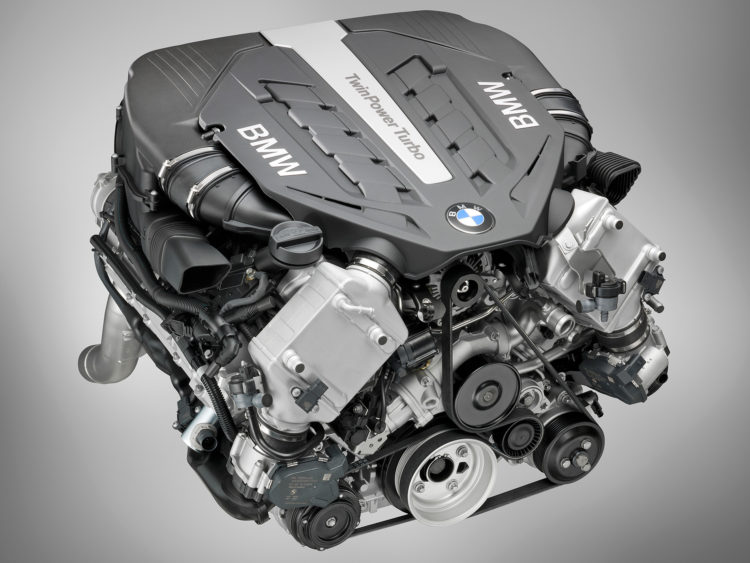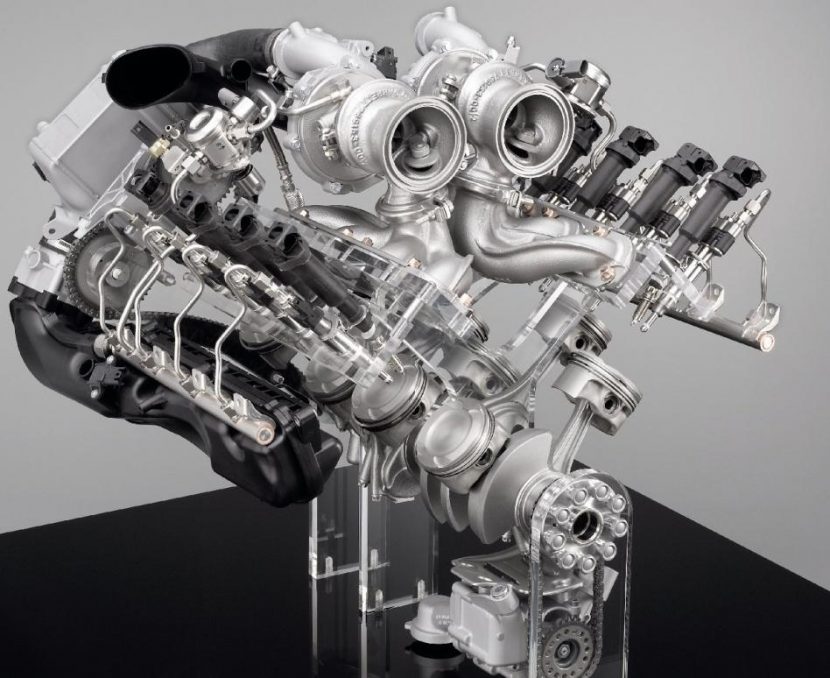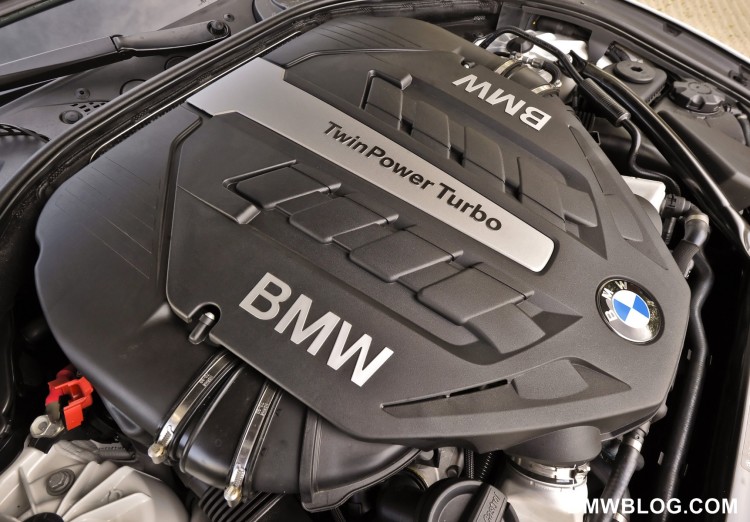
[ad_1]
The BMW N63 engine is a twin-turbocharged V8 that powers a few of the most luxurious and high-performance fashions within the BMW lineup. It was launched in 2008 and has undergone a number of updates and revisions since then. The N63 debuted on the E71 X6 and F01 750i, and would later energy a number of vehicles within the German automaker’s lineup, from the 5 Sequence and 6 Sequence, to the present G05 X5, G06 X6 and G07 X7. It’s additionally used within the BMW ALPINA B8 Gran Coupe and the 2022 Land Rover Vary Rover L460 and L461.
The N63 engine is understood for its spectacular energy output, easy efficiency and refined sound. Nevertheless, it additionally has some drawbacks and reliability points which have plagued many house owners and mechanics. To deal with a few of these points, BMW began the N63 Buyer Loyalty Provide and the N63 Buyer Appreciation Program in 2014.
BMW N63 Expertise
- Manufacturing Run: 2008 – Current
- Configuration: V8
- Bore: 89mm
- Stroke: 88.3mm
- Valvetrain: DOHC with VVT Twin VANOS
- Displacement: 4.4 L (China markets will get a 4.0 liter)
- Compression Ratio: 10:1
- Weight: 503 lbs.
- Horsepower: 402 hp – 523 hp
- Torque : 443 lb-ft – 553 lb-ft
Execs of the BMW N63 Engine
Energy
The primary benefit of the BMW N63 engine is its energy. The engine can produce from 402 horsepower (N63B44O0) to 523 hp (N63B44T3), relying on the variant and tuning. This makes it one of the crucial highly effective engines in its class, and permits the vehicles outfitted with it to speed up from 0 to 60 mph in underneath 5 seconds. The engine additionally has a easy and linear energy supply, due to the twin-scroll turbochargers that scale back turbo lag and enhance responsiveness.
Gas Effectivity
One other professional of the BMW N63 engine is its gasoline effectivity, although right here your mileage would possibly differ. Regardless of its massive displacement and excessive output, the engine can obtain respectable gasoline mileage, due to some progressive applied sciences comparable to direct injection, variable valve timing, cylinder deactivation and stop-start system. The engine may run on common unleaded gasoline, in contrast to a few of its rivals that require premium gasoline. In fact, the gasoline consumption can differ relying on a number of elements, comparable to driving habits, street circumstances, and automobile upkeep. Nevertheless, based on official EPA estimates, the BMW 750i xDrive with the N63tu engine has a mixed gasoline economic system ranking of 18 miles per gallon (mpg) and a metropolis/freeway ranking of 15/22 mpg.
Easy and Nice Sounding
Regardless of its energy, the N63 operates with exceptional smoothness and refinement. The engine is well-balanced and generates minimal vibration, guaranteeing a cushty driving expertise throughout a number of functions.The engine additionally has a particular and refined sound that matches the character of a turbo V8. The exhaust notice is a deep, throaty rumble that’s particularly pleasing at greater revs.
Cons of the BMW N63 Engine
Reliability
The primary downside of the BMW N63 engine is its reliability. Early variations of the N63 (2008-2013) suffered from a number of well-documented reliability points, together with excessive oil consumption, turbocharger failures, and valve stem seal leaks. Later iterations (N63TU onwards) addressed a few of these issues, however they’re not resistant to points altogether. Prospects additionally reported different varied issues and failures, comparable to coolant leaks, carbon buildup, timing chain points and gasoline injector failures. A few of these issues could be very costly and tough to repair, and should require in depth repairs or replacements. The engine additionally has a excessive upkeep price, because it requires frequent oil modifications, spark plug modifications, coolant flushes and different companies.
Complexity
One other con of the BMW N63 engine is its complexity. The engine has loads of elements and programs that work collectively to ship its efficiency and effectivity, but additionally make it extra vulnerable to malfunctioning and breaking down. The engine additionally requires particular instruments and gear to service and restore, which is probably not available at some retailers or dealerships. The engine additionally has a excessive sensitivity to poor high quality gasoline, oil and coolant, which may trigger harm or degradation over time.
Reliability of the BMW N63 Engine
The N63’s reliability is a combined bag. Early variations (2008-2013) are infamous for being problematic, with the aforementioned points considerably impacting possession prices. BMW addressed these points with subsequent revisions, however the N63 nonetheless isn’t a paragon of reliability in comparison with its rivals. Subsequently, the reliability of the BMW N63 engine is tough to quantify, because it relies on many elements such because the age, mileage, situation, upkeep historical past and driving habits of the automobile.
Nevertheless, based mostly on some on-line sources and boards, the common lifespan of the N63 engine is round 100,000 miles, with some homeowners reporting kind of mileage earlier than encountering main issues or failures.
Necessary Word
The primary technology of the N63 engine (N63B44O0) was produced from 2008 to 2014, and was utilized in fashions such because the 550i, 650i, 750i, X5 xDrive50i and X6 xDrive50i. This technology of the engine had a few of the most extreme and customary issues, comparable to oil leaks from the higher oil pan gasket, valve cowl gasket and turbocharger oil traces; coolant leaks from the water pump, thermostat housing and radiator; extreme oil consumption as a result of defective piston rings; carbon buildup on the consumption valves as a result of direct injection; timing chain stretch or breakage as a result of inadequate lubrication; gasoline injector failures as a result of excessive stress; valve stem seal failures as a result of put on; and turbocharger failures as a result of overheating or oil hunger.
The second technology of the N63TU engine (N63B44O1) was produced from 2014 to 2019, and was utilized in fashions such because the F01/F02 750i, F07 550i GT, F10 550i, F15 X5, F16 X6, F06/F12/F13 650i. One other technical replace N63TU2 (N63B44O2) arrive in 2016 and was used within the G11/G12 750i and within the G30/G31 M550i.
In 2018, BMW delivers a brand new replace: N63TU3 (N63B44M3) which powered the G05 X5 and G07 X7. The ultimate replace is named the N63B44T3 (N63TU3) and powers the next fashions:
- 2018– G14/G15/G16 M850i xDrive
- 2019-2022; G11/G12 750i/750Li sDrive/xDrive
- 2020-2023; G30/G31 M550i xDrive
- 2020-2023; G05 X5 M50i
- 2020-2023; G06 X6 M50i
- 2020-2022; G07 X7 M50i
- 2021– G14/G15/G16 Alpina B8 Gran Coupe
- 2022– Land Rover Vary Rover (L460)
- 2022– Land Rover Vary Rover Sport (L461)
Recommendations on Tips on how to Keep the BMW N63 Engine
The BMW N63 engine is a classy and highly effective engine that requires correct care and upkeep to make sure its longevity and efficiency. Listed here are some tips about how one can preserve the BMW N63 engine:
Basic Upkeep:
- Frequent Oil Adjustments: Don’t observe the automaker’s really helpful oil change intervals. Purpose for each 5,000 miles or much less, utilizing solely high-quality artificial oil accepted for the N63.
- Common Inspections: Schedule annual inspections by a professional mechanic conversant in the N63 engine. They’ll establish potential points earlier than they change into main issues.
- Look ahead to Leaks: Hold an eye fixed out for oil leaks, particularly across the valve cowl gaskets and turbochargers.Early detection saves cash and prevents engine harm.
- Drive it Recurrently: Keep away from brief, stop-and-go journeys. The N63 thrives on longer drives at freeway speeds to correctly heat up and burn off carbon deposits.
- Don’t Skimp on High quality: Use solely OEM or high-quality substitute elements for any repairs or replacements.Low-cost elements could cause extra issues in the long term.
Particular N63 Considerations:
- Turbochargers: Recurrently verify for indicators of turbocharger failure like extreme oil consumption, blue smoke from the exhaust, and lack of energy. Contemplate preventative upkeep like cleansing the carbon buildup within the consumption valves.
- Direct Injection: Carbon buildup on the consumption valves is a standard situation in direct injection engines. Contemplate walnut blasting each 50,000-75,000 miles to take away the buildup and enhance efficiency.
- Excessive-Strain Gas Pump (HPFP): Failure of the HPFP can depart you stranded. Hear for a high-pitched whine from the gasoline pump, particularly throughout chilly begins. Changing the HPFP proactively can forestall sudden breakdowns.
- Water Pump: Leaks from the water pump can result in overheating and engine harm. Be conscious of coolant ranges and pay attention for uncommon noises from the water pump space.
Extra Ideas:
- Set up a catch can to scale back carbon buildup within the consumption system.
- Use a high-quality gasoline injector cleaner usually.
- Keep away from aggressive driving and extreme idling.
- Contemplate prolonged guarantee protection for peace of thoughts.
[ad_2]


